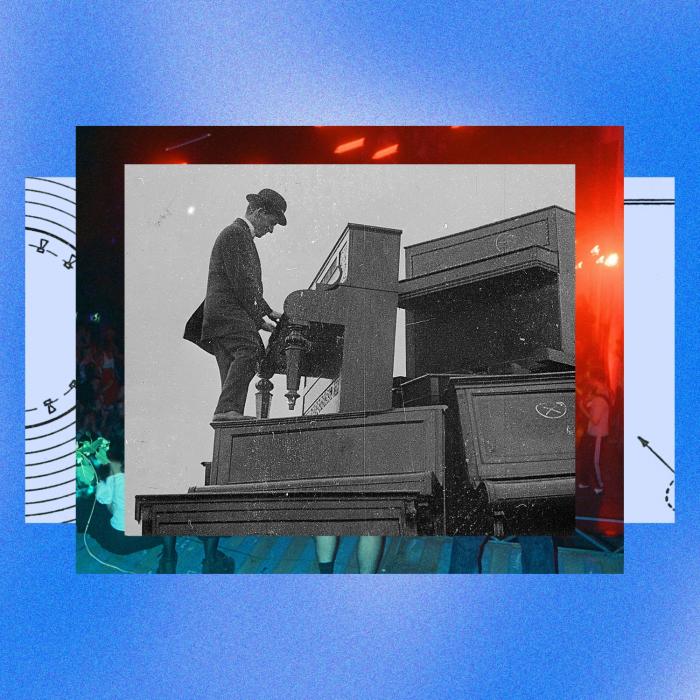
From the crackling voices of early radio broadcasts to the pristine digital clarity of contemporary music, the NFSA’s sound recordings span more than a century and encapsulate our cultural, historical and technological evolution.
In this article, we explore some key examples from our Sounds of Australia collection, the NFSA’s annual capsule of iconic audio moments, honouring recordings that have resonated deeply with communities and audiences across the country.
Sounds of Australia: the complete list
1890s
1896 – The Hen Convention, Thomas Rome
1898 – The Recordings of the Cambridge Anthropological Expedition to Torres Straits, Alfred Cort Haddon and others
1898 – They Always Follow Me, Syria Lamonte
1899 – Fanny Smith’s Tasmanian Aboriginal Songs, Horace Watson
1900-1919
1900 – The Absent-Minded Beggar, JJ Virgo
1901-1902 – Cylinder Recordings from Central Australia, Spencer and Gillen and Aboriginal communities
1904 – Chant Vénitien, Nellie Melba
1904 – Farewell Address to Australia, Hallam Lord Tennyson
c1905 – Caro Mio Ben, Ada Crossley
1907 – The Black Watch, Percy Herford
1907 – Starlight, Hamilton Hill
1910 – My South Polar Expedition, Ernest Shackleton
1910 – Sweet Spirit Hear My Prayer, Marie Narelle
1912 – When Father Papered the Parlour, Billy Williams
1913 – Hold Your Hand Out Naughty Boy, Florrie Forde
1914 – Message Recorded at Mena Camp, Cairo, Second Lieutenant Henry Miller Lanser
1915 – The Landing of the Australian Troops in Egypt, Zonophone
1919 – Country Gardens, Percy Grainger
1920s
1921 – Love Will Find a Way, Gladys Moncrieff
1924 – London Recordings, Newcastle Steelworks Band
1926 – Freshie ; After the Dawn, Sydney Simpson and his Wentworth Café Orchestra
1926 – Speech at the Opening of the Columbia Graphophone Company Australian Factory, Admiral Sir Dudley De Chair KCB MVO
1927 – Anvil Chorus, PC Spouse
1927 – The Sailors, Stiffy & Mo
1927 – Waltzing Matilda, John Collinson
1927–1932 Sydney Recordings, Queenie and David Kaili
1928 – Hinkler’s Message to Australia ; Incidents of My Flight, Bert Hinkler
1928 – Twilight of the Gods (Die Götterdämmerung), Florence Austral
1930s
1930 – The 1930 Australian XI: Winners of the Ashes
1930 – Our Don Bradman, Len Maurice
1931 – Along the Road to Gundagai, Peter Dawson
1931 – Sweet Nell of Old Drury, Nellie Stewart
1933 – Etude de concert in F minor and Etude de concert in A flat major, Eileen Joyce
1936 – Wrap Me Up In My Stockwhip and Blanket, Tex Morton
1936–40 – Yes, What?, 5AD, Rex Dawe and cast
1937 – Dad and Dave from Snake Gully (Radio Series), George Edward Players
1937 – Life Without Love, Frank Coughlan’s Trocadero Orchestra
1938 – The Aeroplane Jelly Song, Joy King
1938 – Where the Dog Sits on the Tuckerbox, Jim Davidson's Dandies and Dick Cranbourne
1939 – Give A Little Credit to Your Dad ; Lonesome For Your Mother Dear, Buddy Williams
1939 – Menzies Speech: Declaration of War, Sir Robert Menzies
1940s
1940–58 – Australia's Amateur Hour, AWA
1941 – Concert in a Cave at Tobruk, Chester Wilmot, ABC Field Unit
1941 – Curtin Speech: Japan Enters Second World War, John Curtin
1941 – The Melbourne Cup, Ken Howard, sports commentator
1941–72 – Argonauts Row, Harold Williams
1942 – Digger, Jack Lumsdaine
1943 – Dame Enid Lyons: Maiden Speech, Dame Enid Lyons
1943 – Senator Dorothy Tangney: Maiden Speech, Dorothy Tangney
1943 – The Majestic Fanfare (ABC radio news theme), Queen’s Hall Light Orchestra
1944 – Swanston St Shamble ; Two Day Jag, Graeme Bell
1944 onwards – Grace Gibson Productions’ radio serials, various artists
1945 – First Parliamentary Sitting Broadcast – Victory in Europe, Ben Chifley and Sir Robert Menzies
1945 – Women’s Status in the United Nations Charter, Jessie Street
1948–1962 – Pick A Box, Bob Dyer
1949 – Theme from Blue Hills, New Century Orchestra
1950s
1950 – Corroboree, Sydney Symphony Orchestra
1950 – Maranoa Lullaby, Harold Blair
1952 – I'm the Sheik of Scrubby Creek, Chad Morgan
1952 – Horrie Dargie Concert, The Horrie Dargie Harlequintet
1953 – Sam Griffiths, Jack Luscombe
1953 – Tribal Music of Australia, AP Elkin
1954 – Happy Little Vegemites, Betty Parker, Stephen Parker, Julia Parker and Linda Marcy
1954 – Speaking Clock, Gordon Gow and the Postmaster-General's Department
1955 – Prestophone Mastertape, Olive and Eva
1955 – The Adventure of the Singing Bullet, Smoky Dawson
1955 – The Drover's Dream, Alan Scott and the Bushwhackers
1955–1967 – Binny Lum Collection, Binny Lum and interviewees
1956 – The Man from Snowy River, Leonard Teale
1956 – Olympic Games, Melbourne 1956: Opening Ceremony and Closing Ceremony, Official Souvenir Recording
1957 – A Pub With No Beer, Slim Dusty
1958 – My Country, Dorothea Mackellar
1959 – Aboriginal Recordings, John Hutchinson
1959 – Bye Bye Baby, Col Joye
1959 – Come Closer to Me, Pilita Corrales
1960s
1960 – The Art of the Prima Donna, Dame Joan Sutherland
1960 – She’s My Baby, Johnny O’Keefe
1961 – The Death of a Wombat, Ivan Smith and George S English
1961 – I Only Came to Say Goodbye, Wilma Reading
1961 – Nausicaa: Opera in Three Acts, Peggy Glanville-Hicks
1962 – Georgia Lee Sings the Blues Down Under, Georgia Lee
1962 – I Remember You, Frank Ifield
1962 – I’ve Been Everywhere, Lucky Starr
1962 – 'Louie the Fly' Mortein jingle, Neil Williams and Ross Higgins
1963 – Arnhem Land Popular Classics: Aboriginal Dance Songs with Didjeridu Accompaniment, David Blanasi, Djoli Laiwanga and others
1963 – Bombora, The Atlantics
1963 – Doctor Who theme, Ron Grainer and Delia Derbyshire
1963 – Royal Telephone, Jimmy Little
1963 – He's My Blonde-Headed, Stompie Wompie, Real Gone Surfer Boy, Little Pattie and The Statesmen
1963–1997 – The Luise Hercus Collection, AIATSIS Audiovisual Archive
1964 – I’ll Never Find Another You, The Seekers
1964 – The Land Where the Crow Flies Backwards, Dougie Young
1965 – Decimal Currency Jingle, Ted Roberts
1966 – Friday On My Mind, The Easybeats
1966 – In the Head the Fire, Nigel Butterley
1966 – The Loved One, The Loved Ones
1966 – Patrol from Da Nang, Tim Bowden
1966 – Play School Theme (There's a Bear in There), Various performers
1967 – Fireworks and The Orgasmic Opus, Dr Val Stephen
1967 – Irkanda IV, Melbourne Symphony Orchestra
1968 – Bird and Animal Calls of Australia, Harold J Pollock
1968 – Lionel Rose Wins the World Title, Ron Casey
1968 – Skippy the Bush Kangaroo, Eric Jupp
1968 – Victoria Bitter advertisements, John Meillon, George Patterson agency
1968–1972 – Jimmie Barker collections, Jimmie Barker
1969 – The Real Thing, Russell Morris
1970s
1971 – And the Band Played Waltzing Matilda, Eric Bogle
1971 – Because I Love You, The Master’s Apprentices
1971 – Eagle Rock, Daddy Cool
1971 – Just the Beginning, Don Burrows Quartet
1972 – I Am Woman, Helen Reddy
1972 – It’s Time, Alison McCallum
1972 – Most People I Know (Think That I’m Crazy), Billy Thorpe and the Aztecs
1972 – A Track Winding Back ; True British Spunk, Barry Humphries and Dick Bentley
1973 – The Loner, Vic Simms
1973 – Opening Concert Sydney Opera House, Sir Charles Mackerras, Sydney Symphony Orchestra and Birgit Nilsson
1973 – The Lord's Prayer, Sister Janet Mead
1974 – Cyclone Tracy, Darwin
1974 – Living in the 70s, Skyhooks
1975 – Earliest 2EA broadcasts, SBS Radio
1975 – Heading in the Right Direction, The Renée Geyer Band
1975 – It’s A Long Way to the Top (If You Wanna Rock ‘n’ Roll), AC/DC
1975 – 'Kerr’s cur’ speech, Gough Whitlam
1976 – Girls in Our Town, Margret RoadKnight
1976 – Howzat, Sherbet
1976 – (I’m) Stranded, The Saints
1977 – Love is in the Air, John Paul Young
1977 – Menstruation Blues, Robyn Archer
1977 – Stayin' Alive, The Bee Gees
1978 – C'mon Aussie C'mon, The Mojo Singers
1978 – Khe Sanh, Cold Chisel
1978 – You’re the One That I Want, Olivia Newton-John and John Travolta
1979 – Harry Williams and the Country Outcasts, Harry and Wilga Williams and the Country Outcasts
1979 – Up There Cazaly, The Two-Man Band
1979–89 – Sampling Sounds, Fairlight CMI
1979–2005 – Gaywaves, Gaywaves Collective
1980s
1980 – The 4×100 Medley Relay Final at the Moscow Olympics, Norman May
1980 – I Still Call Australia Home, Peter Allen
1981 – Boys in Town, Divinyls
1981 – Brand New Day (Milliya Rumarra), Kuckles
1981 – Down Under, Men at Work
1981 – Improvisation in Acoustic Chambers, Ros Bandt
1981 – Slip! Slop! Slap! jingle, Peter Best and Phillip Adams
1981 – We Have Survived, No Fixed Address
1982 – Don't Change, INXS
1982 – Great Southern Land, ICEHOUSE
1982 – Power and the Passion, Midnight Oil
1982 – Solid Rock, Goanna
1982 – The Man from Snowy River soundtrack, Bruce Rowland
1983 – Cattle and Cane, The Go-Betweens
1983 – I Was Only 19 (A Walk in the Light Green), Redgum
1983 – Jailanguru Pakarnu, The Warumpi Band
1985 – Like Wow, Wipeout, Hoodoo Gurus
1985 – Sounds of Then (This is Australia), GANGgajang
1986 – True Blue, John Williamson
1986 – We Are Going, Oodgeroo Noonuccal (Kath Walker)
1986 – You’re the Voice, John Farnham
1986 – Wide Open Road, The Triffids
1986–2008 – This Sporting Life, Roy and HG
1987 – I Should Be So Lucky, Kylie Minogue
1987 – Rebetika Songs, Apodimi Compania
1987 – Recording of a Superb Lyrebird at Healesville, Victoria, Greg Wignell
1987 – Voss, Richard Meale
1987 – Neighbours, Barry Crocker
1988 – Tender Prey, Nick Cave and the Bad Seeds
1988 – Bicentenary protest coverage, Radio Redfern
1990s
1990 – Dingo, Vicki Powys
1990 – Took the Children Away, Archie Roach
1991 – Treaty, Yothu Yindi
1992 – Antarctica: Suite for Guitar and Orchestra, Nigel Westlake
1992 – Kickin’ to the Undersound, Sound Unlimited
1992 – Redfern Address, Paul Keating
1992–2008 – Songlines: Songs of the East Australian Humpback Whales, Mark Franklin (The Oceania Project)
1993 – Alive and Brilliant, Deborah Conway
1993 – From Little Things (Big Things Grow), Paul Kelly and Kev Carmody
1993–2014 – Deadly Sounds, Vibe Australia
1994 – Chains, Tina Arena
1994 – Tomorrow, Silverchair
1995 – Island Home, Christine Anu
1995 – LSD, djhmc
1995–98 – Martin/Molloy, Tony Martin and Mick Molloy
1997 – I am Australian by Various
1997 – Truly Madly Deeply, Savage Garden
1998 – Toot, Toot, Chugga, Chugga Big Red Car, The Wiggles
1999 – These Days, Powderfinger
2000s
2001 – Aether, The Necks
2001 – Not Pretty Enough, Kasey Chambers
2003 – Nosebleed Section, Hilltop Hoods
2005 – Wild Swans, Tasmanian Symphony Orchestra
2008 – Gurrumul, Gurrumul
2008 – Apology to The Stolen Generations, Hon Kevin Rudd AC, 26th Prime Minister of Australia
2009 – Last Call of the Christmas Island Pipistrelle, Zoos Victoria
2010s
2011 – Somebody That I Used to Know, Gotye ft. Kimbra
2012 – Concerto of the Greater Sea, Joseph Tawadros
2012 – The Misogyny Speech, Julia Gillard
2013 – Inaugural Speech to the Australian Parliament, Nova Peris
Sounds of Australia 2024
What do Doctor Who, an ultrasonic bat and a talking clock have in common? They were all added to the Sounds of Australia collection in 2024.
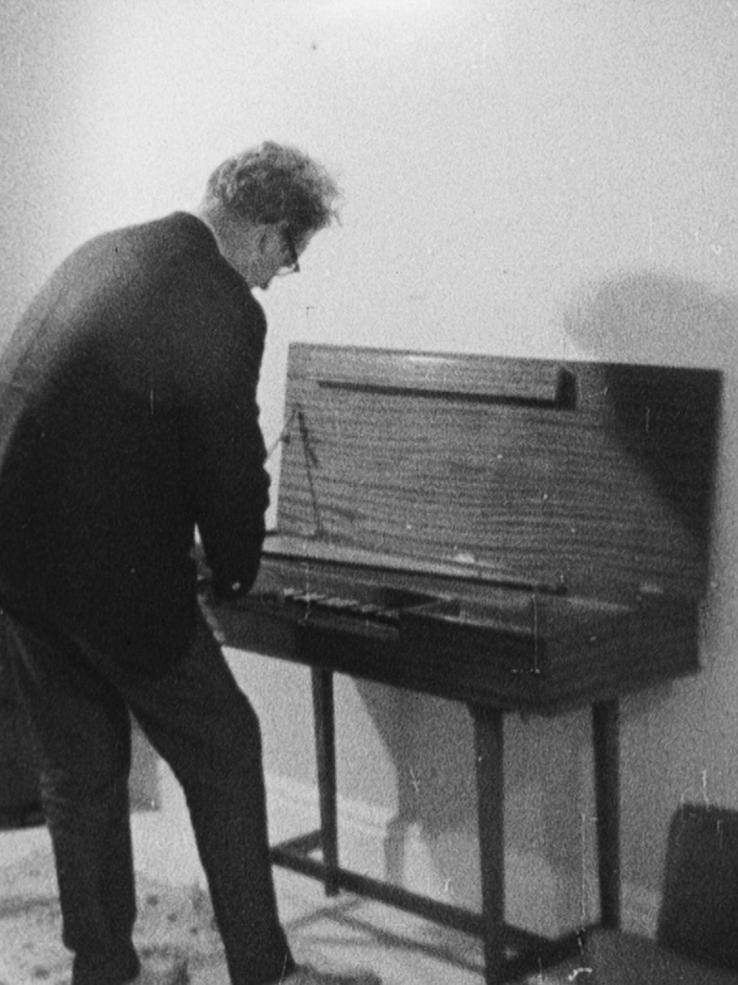
Doctor Who theme (1963): Ron Grainer (composer) and Delia Derbyshire (musician and arranger)
Did you know the unforgettable Doctor Who music – one of the most iconic television scores of all time – was written by an Australian composer?
While the theme for the long-running BBC series, with its otherworldly pulsing bassline, was produced and recorded by English musician Delia Derbyshire, it was written by Australian composer Ron Grainer.
Chains (1994): Tina Arena
The anthemic power ballad ‘Chains’ (1994) became a career-defining moment for Tina Arena upon its release in August 1994. It reached No. 4 in the Australian charts, No. 6 in the UK, No. 20 in Canada and No. 38 in the USA, cementing her place on the global stage. ‘Chains’ helped propel Tina’s album Don’t Ask to become one of Australia’s highest-selling albums, winning multiple ARIA Awards, including Album of the Year.
The music video (above) for ‘Chains’ reflects its smoky dance beats and powerhouse vocals with a striking visual narrative. Tina, playing a spurned lover, sits in a darkened, cloth-covered apartment, shedding her bitter past by removing the coverings and discarding items tied to her pain. What a performance.
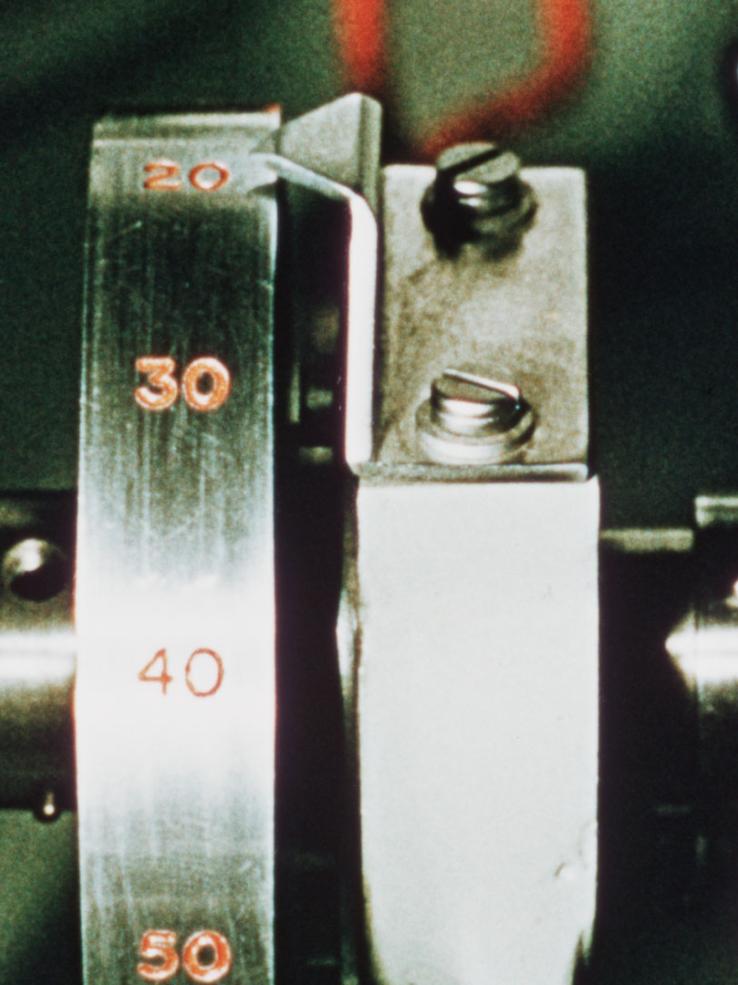
Speaking Clock (1955): Gordon Gow and the Postmaster-General's Department
Before internet-connected devices kept us on schedule, how did Australians check the time? By calling the Speaking Clock.
Introduced by the Postmaster General’s Department in 1953, the Speaking Clock could be accessed by dialling 1194.
Nova Peris: Inaugural Speech to the Australian Parliament (2013)
In 1996, Nova Peris became the first Aboriginal or Torres Strait Islander to win a gold medal at the Olympics, as part of the women’s field hockey team.
After making history on the field, Peris turned her attention to politics. In 2013, she became the first Aboriginal woman elected to the Federal Parliament. Her maiden speech, a profound and historic moment, is one of the 10 additions to the NFSA’s Sounds of Australia collection in 2024.
Peris spoke passionately about the struggles of her people. She declared she would give up her accolades ‘in a heartbeat’ to see First Nations Australians free, healthy, and able to fully participate in the nation’s destiny.
Kickin’ to the Undersound (1992): Sound Unlimited
‘Kickin’ to the Undersound’ (1992) by Sound Unlimited was the first Australian hip hop song to reach the Top 20 in the Australian charts. Group members included brother and sister Rosano (El Assassin) and Tina Martinez, MC Kode Blue and Vlad DJ BTL. The lyrics to ‘Undersound’ draw on Sound Unlimited’s Western Sydney roots and Spanish, Filipino and Russian heritage.
The music video (above) matches the infectious energy of the song, with the visuals cut to the dance-friendly beat. With the iconic Harbour Bridge used as backdrop, the energy and movement doesn’t let up for three minutes.
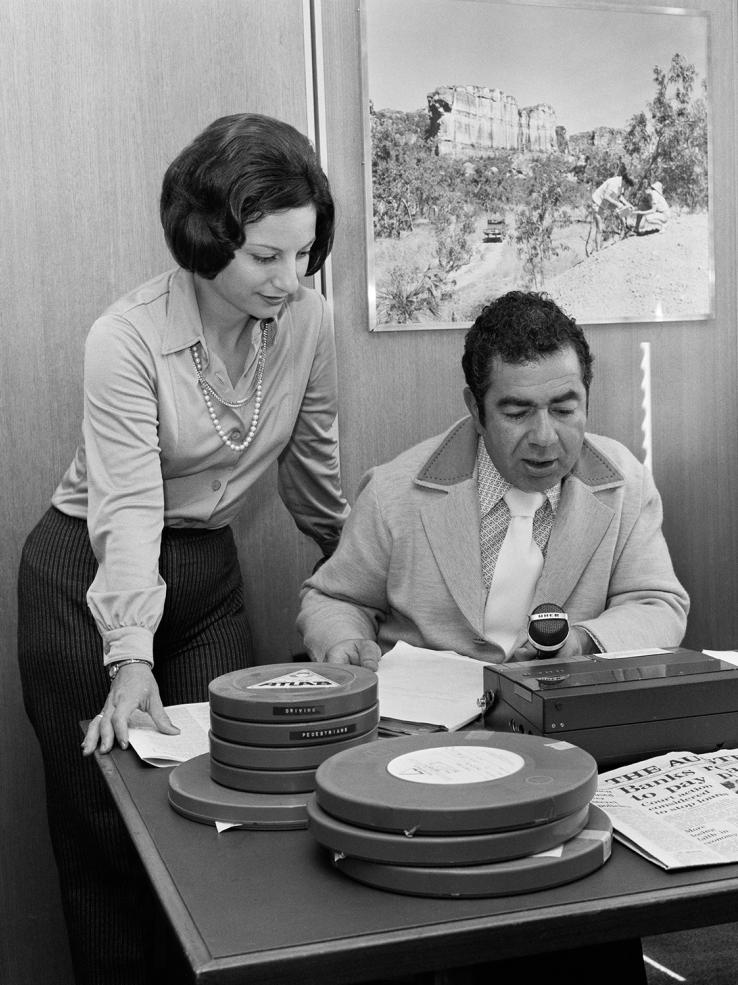
Earliest 2EA broadcasts (1975): SBS Radio
The earliest extant in-language broadcasts by 2EA (then SBS Radio, now SBS Audio), including Arabic, Greek, Italian, Maltese, Spanish, and Yugoslav programs, represents the birth of multilingual and multicultural broadcasting on Australian radio.
Read more and listen to some of the earliest surviving broadcasts from 1975
Image: National Archives of Australia
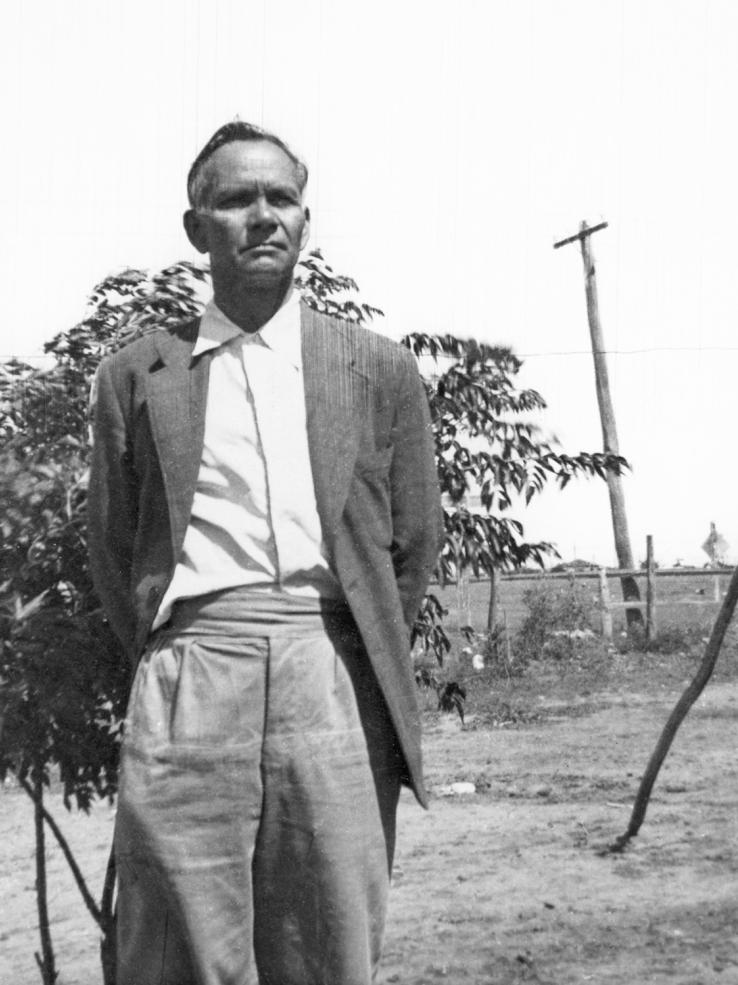
Jimmie Barker collections (1968–1972): Jimmie Barker
Murawari man Jimmie Barker was the first known First Nations Australian to use recorded sound as a tool to preserve and document Aboriginal culture.
His pioneering work produced over 100 hours of audio recordings, which are now preserved by the Australian Institute of Aboriginal and Torres Strait Islander Studies.
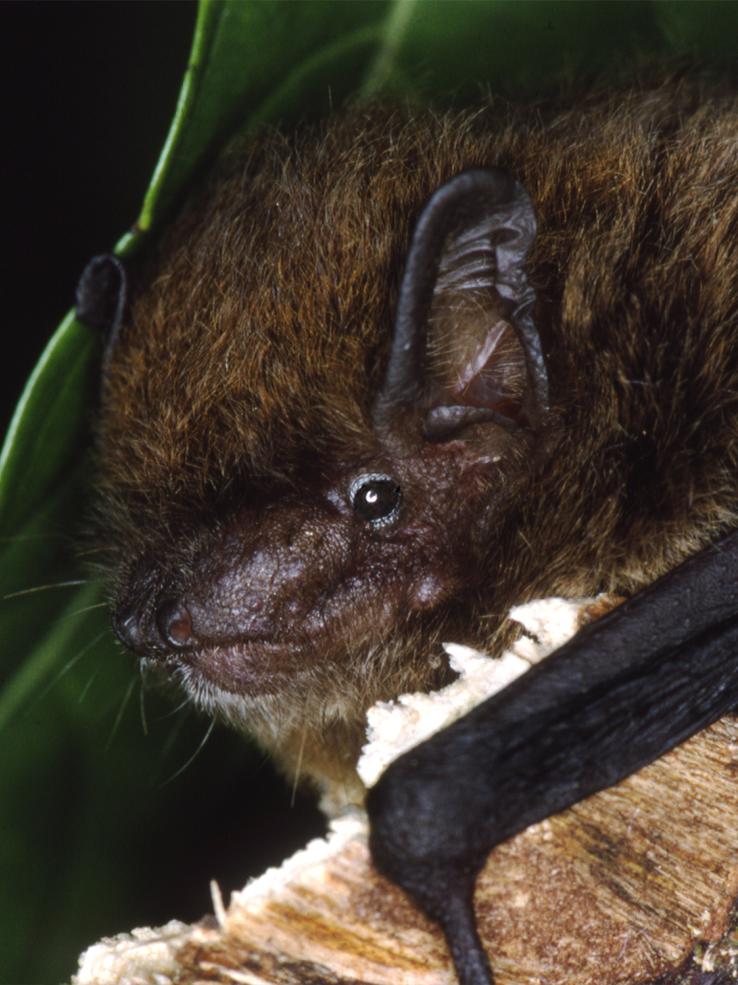
Last call of the Christmas Island Pipistrelle (2009)
Have you heard of the Christmas Island Pipistrelle? Probably not, and you may never have the chance to.
This tiny microbat, weighing only three grams and scientifically named Pipistrellus murrayi, was once found exclusively on Christmas Island. Unfortunately, it was declared extinct in 2017.
Read more and listen to an audible version of the bat's last ultrasonic call
Image: courtesy Dr Lindy Lumsden
Victoria Bitter advertisements (1968): John Meillon (voice-over), George Patterson (agency)
The ‘Big cold beer’ Victoria Bitter advertisements for Carlton & United Breweries, voiced by Australian actor John Meillon (The Cars That Ate Paris, Crocodile Dundee), are arguably Australia’s most iconic beer commercials.
The campaign dates back to 1965 when Sydney agency George Patterson created a promotion for Queensland’s Bulimba Gold Top Beer. In 1967, it was remodelled for Carlton & United Breweries’ Victoria Bitter, and the 1968 recording of John Meillon’s legendary voice-over is now officially part of our Sounds of Australia. This 60-second television commercial is from 1970.
The VB campaign ran continuously, with only minor variations, for 20 years until Meillon’s death in 1989. With the approval of the Meillon family, CUB has continued to use the actor’s voice through digital remastering and by recutting the original recordings.
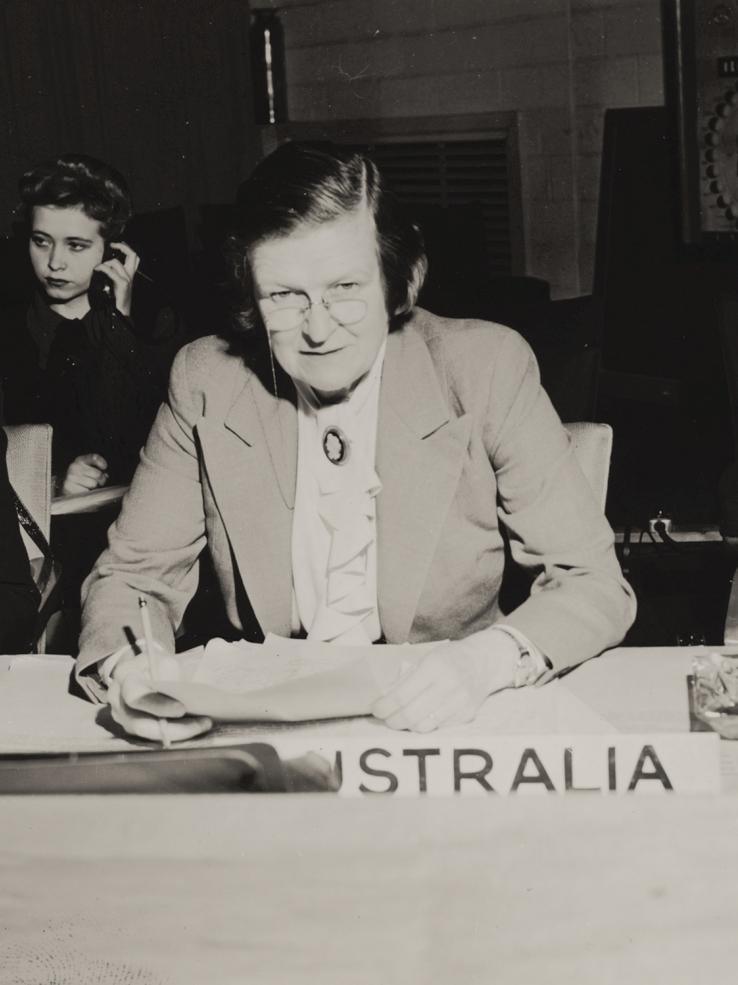
Women’s Status in the United Nations Charter (1945): Jessie Street
Jessie Street was a leading Australian feminist campaigner and the only female Australian delegate to the founding of the United Nations in San Francisco in 1945.
Street and the Australian Women’s Charter Committee successfully argued to to enshrine in the UN charter the principle of equality of status between women and men.
Read more and listen to the 1945 speech
Image: National Library of Australia nla.obj-231551090-1
Inside our Sounds
The selections added to Sounds of Australia in 2024 capture the voices, beats, and stories that define our nation – from Tina Arena’s anthem 'Chains' to the haunting final call of the Christmas Island pipistrelle. This feature dives deeper into the 2024 capsule, unpacking the cultural, historical, and emotional significance of each recording.
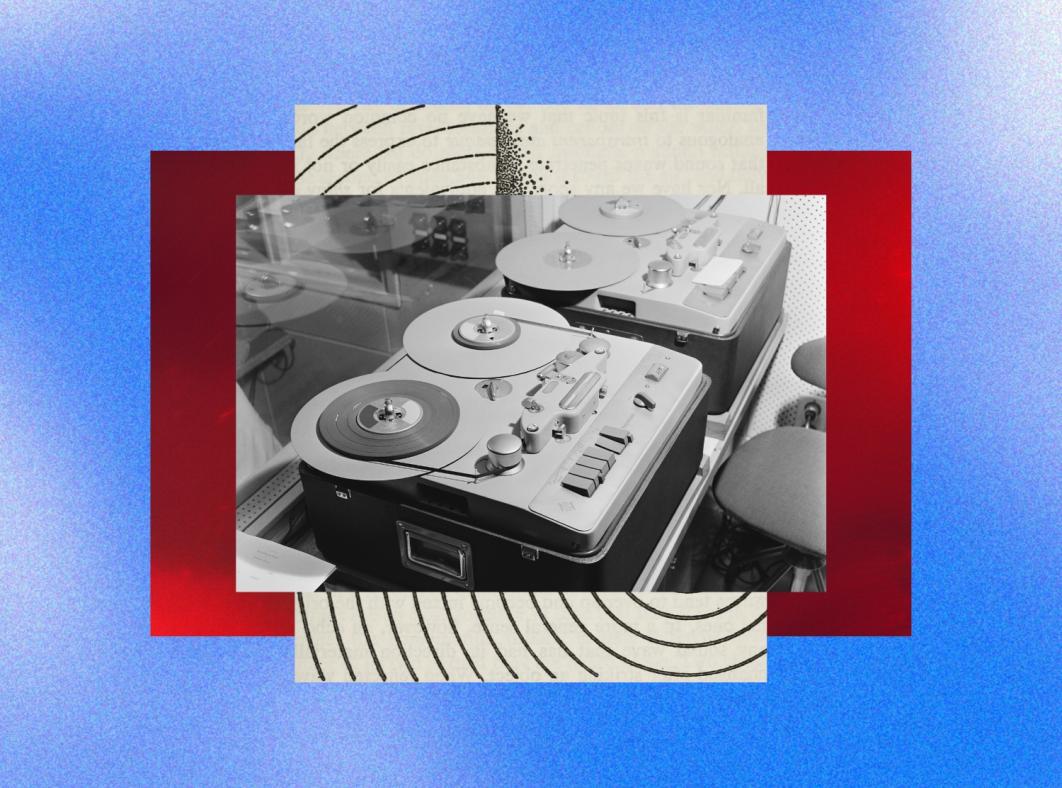
Sounds of Australia 2024: bonus content
Tina Arena describes her mixed emotions when she first heard her hit song 'Chains' (1994) on the radio. Listen to an excerpt from her 1995 interview with Sydney's MIX 106.5.
You can watch a June 1977 Ten Eyewitness News story about Radio 2EA in Sydney, featuring footage of a Turkish radio broadcast.
Watch a short documentary from 1955 demonstrating the workings of the automated Speaking Clock, which saved live telephonists from having to manually read the time of day into a microphone several thousand times a day. Watch The Speaking Clock
Highlights
The Sounds of Australia capsule celebrates recordings that have deeply resonated with a community or an audience or embody cultural identity. They may have received public acclaim, held academic or historical significance, or gone viral.
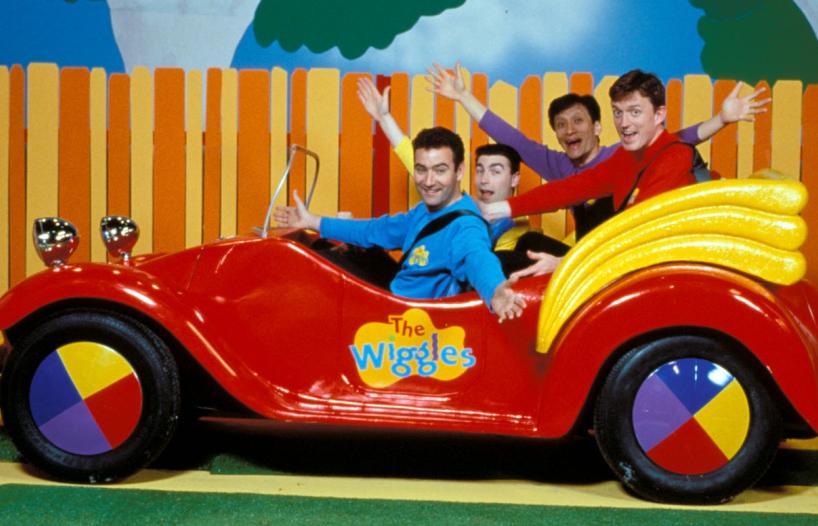
Toot Toot, Chugga Chugga, Big Red Car is the title track from the ninth album by The Wiggles, Toot Toot, released in 1998. The album went on to win the 1998 ARIA Music Award for Best Children's Album.
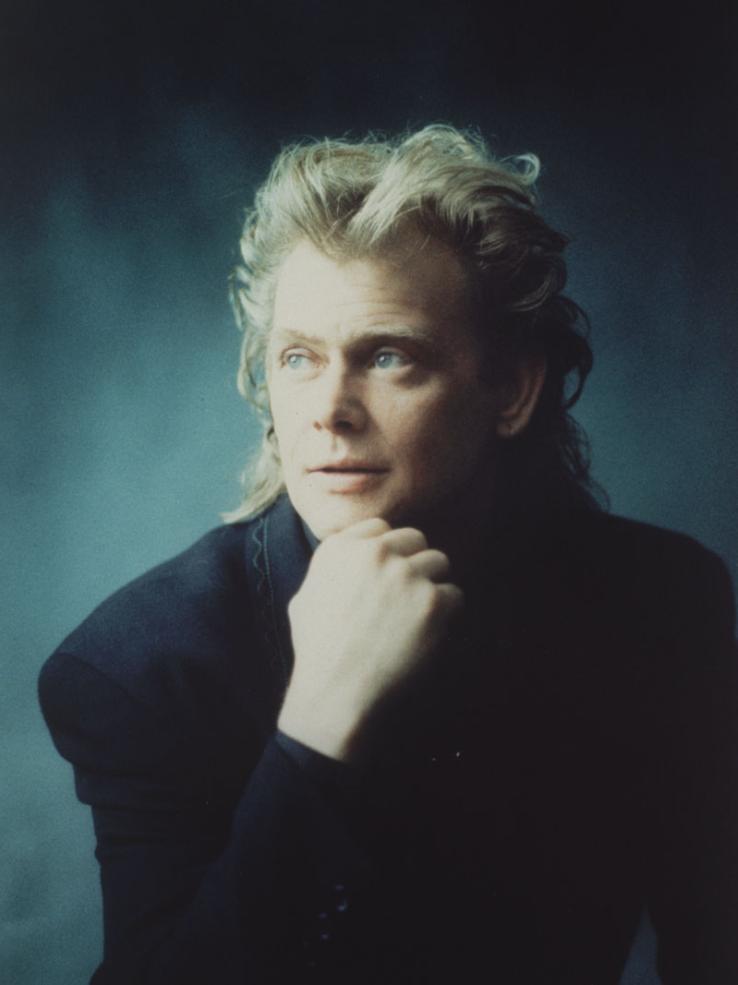
‘You're the Voice’ was released by John Farnham as a single in September 1986, in advance of his album Whispering Jack. The song was one of the biggest hits of 1986 in Australia.
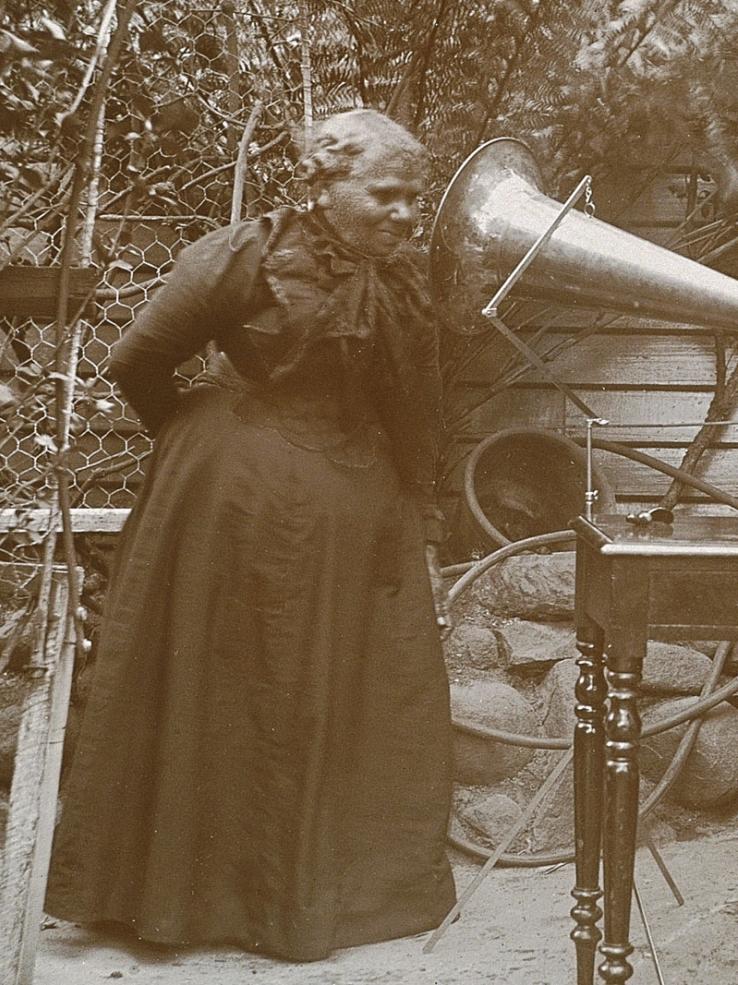
Fanny Smith talks about being the last of the Tasmanians. She then sings in both English and her own language. It is part of a series of recordings made between 1899 and 1903.
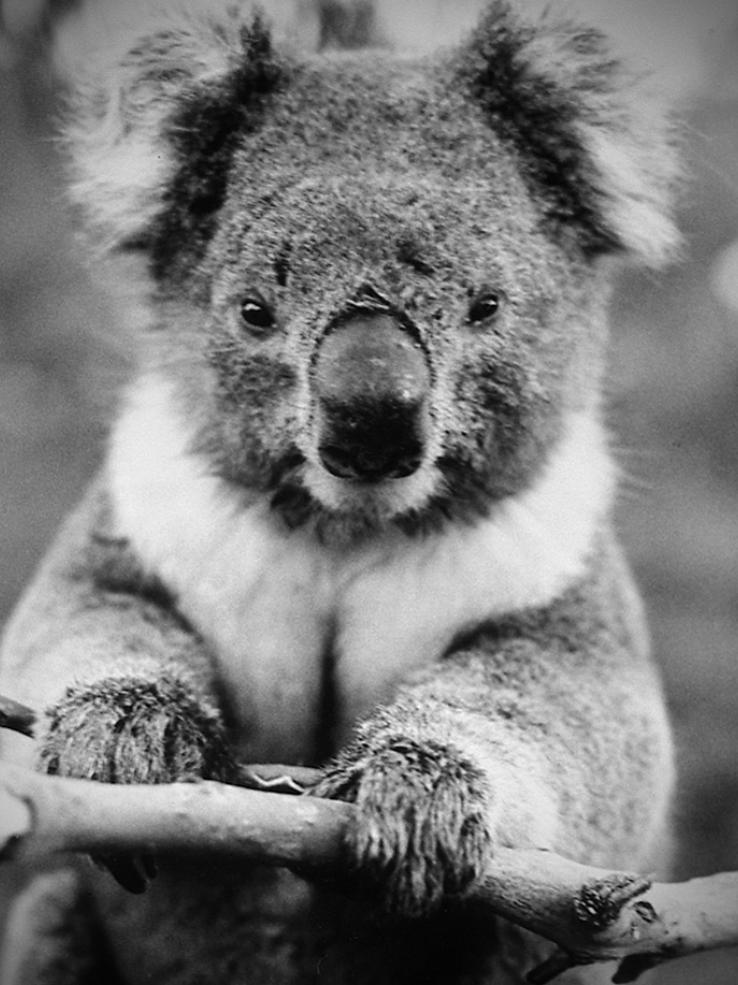
Bird and Animal Calls of Australia (1968) features 25 tracks of Australian bird and animal calls recorded by filmmaker and photographer Harold J (John) Pollock, including 'The male koala grunting’.
'From Little Things (Big Things Grow)', recorded in 1993 by Paul Kelly and Kev Carmody, recites the events of Wave Hill and the successful strike of the Gurindji people. The clip shows the iconic image of Gough Whitlam pouring the soil of the land through Vincent Lingiari’s hand. The photo, taken by Aboriginal photographer Mervin Bishop, is recognisable to both Aboriginal and non-Aboriginal people alike.
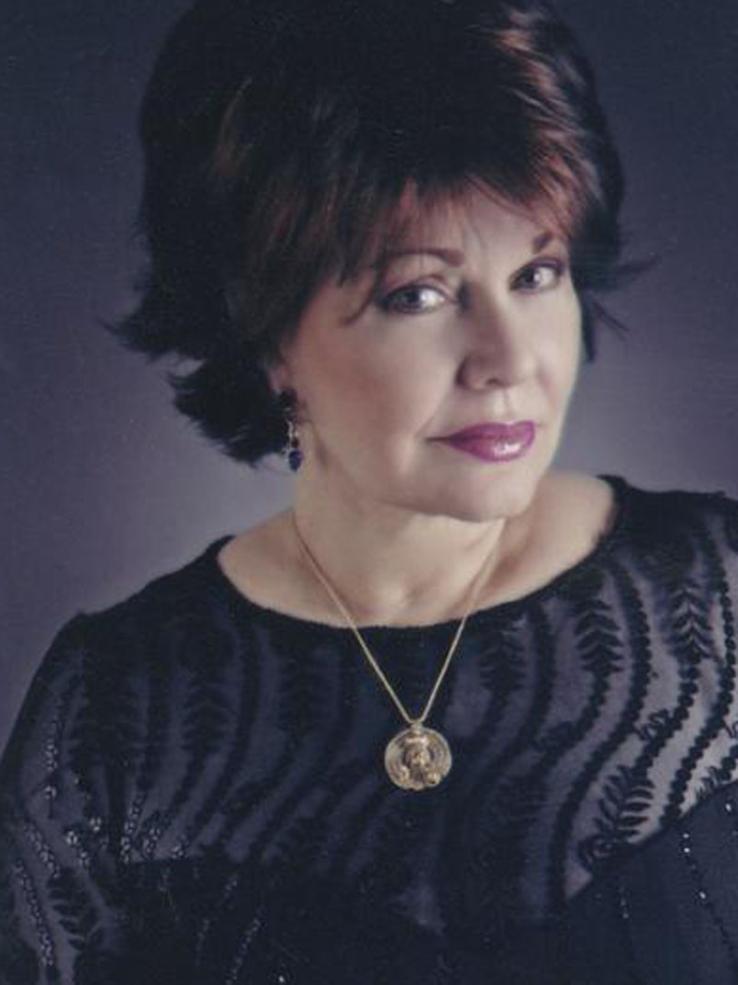
Born in the Philippines, Pilar ‘Pilita’ Garrido Corrales was one of the the first women to make the Australian pop charts with a locally produced record – her hit single ‘Come Closer to Me’, in 1959.
More Sounds of Australia highlights
The sounds may encompass outstanding songs, albums, podcasts, audio memes, advertising jingles, speeches, game soundtracks, recordings from nature, and more that represent the essence of Australia.
Archie Roach’s song 'Took the Children Away' (1990), based on his own life and experience, was released at a time when there was increasing public focus on the Stolen Generations. The song received an international Human Rights Achievement Award, the first time that the award had been bestowed on a songwriter.
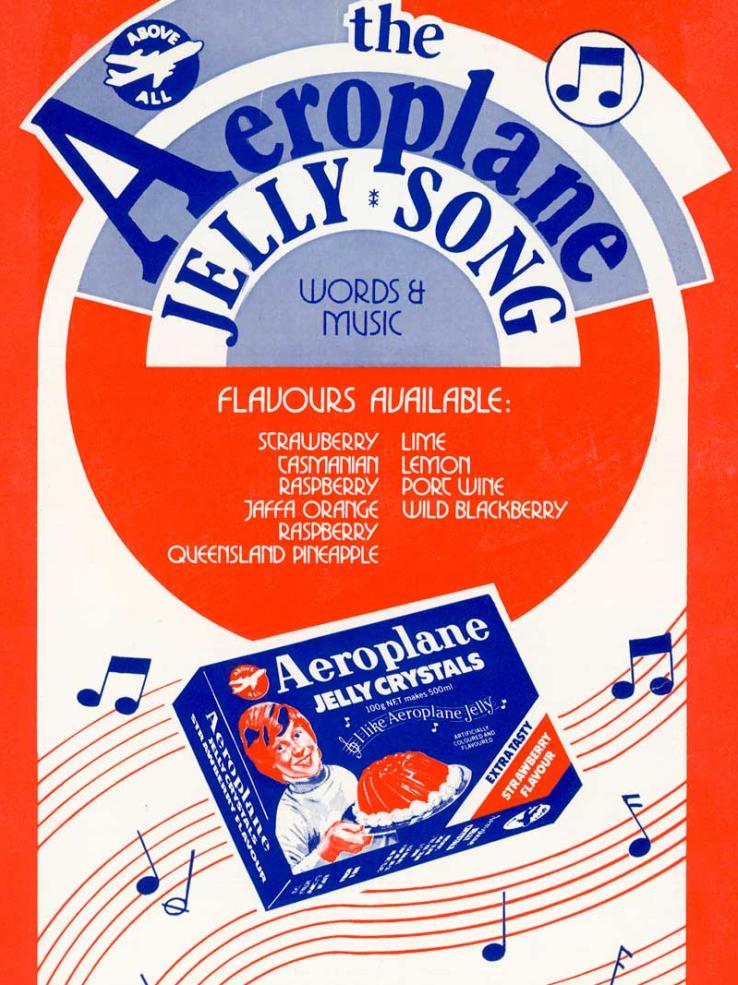
'The Aeroplane Jelly Song' was a popular radio jingle advertising an Australian brand of jelly crystals. Recorded in 1938, it was broadcast on Sydney radio in the 1940s – up to 100 times a day.
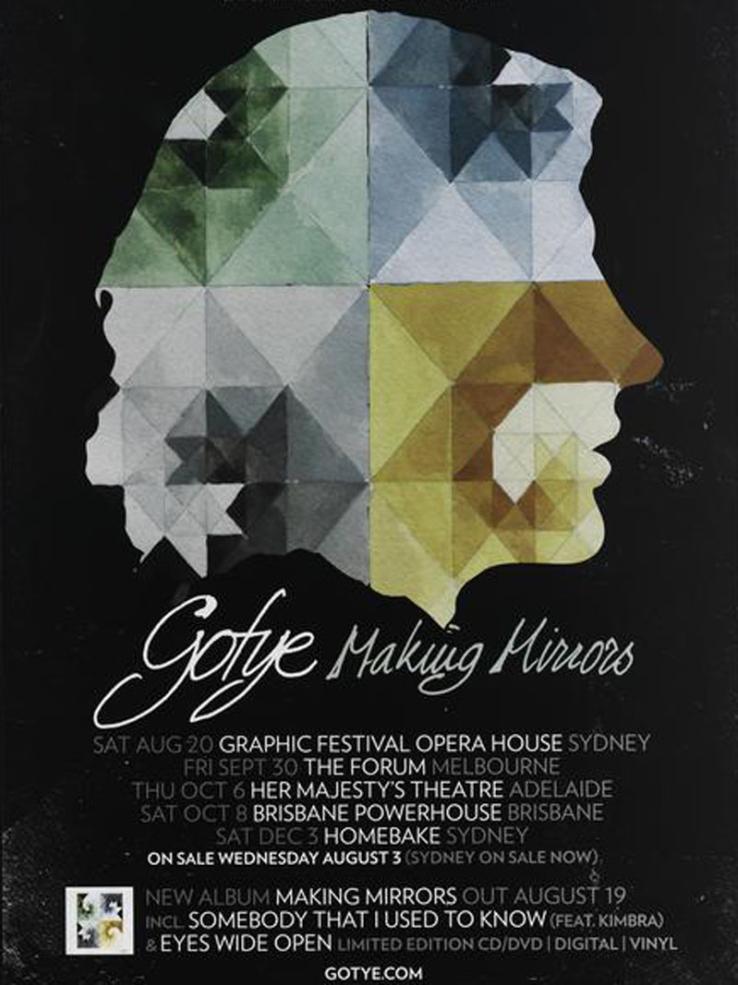
‘Somebody That I Used to Know’ by Belgian-Australian singer-songwriter Gotye and New Zealand singer Kimbra topped the year-end US and UK charts and won two Grammy Awards.
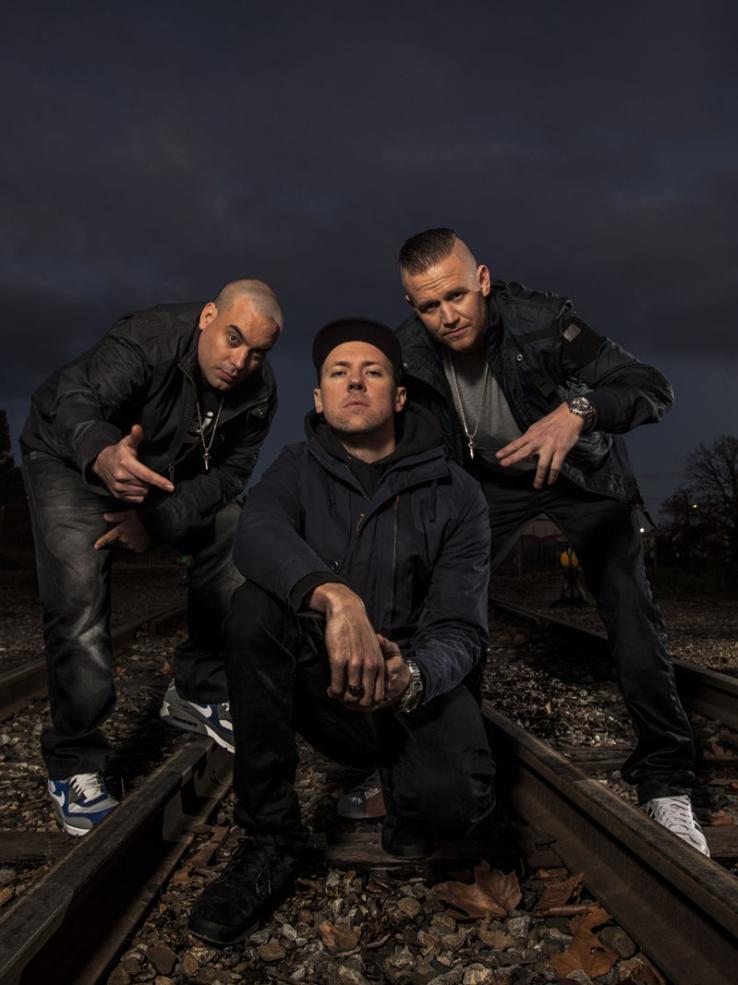
Adelaide hip-hop artists Hilltop Hoods first gained widespread attention with this track in 2003, which propelled the album The Calling to become the first Australian hip-hip CD to be awarded Platinum status.
‘The Misogyny Speech’, delivered by Australian Prime Minister Julia Gillard on 9 October 2012, was voted the most unforgettable moment in Australian TV history by readers of The Guardian Australia in 2020.
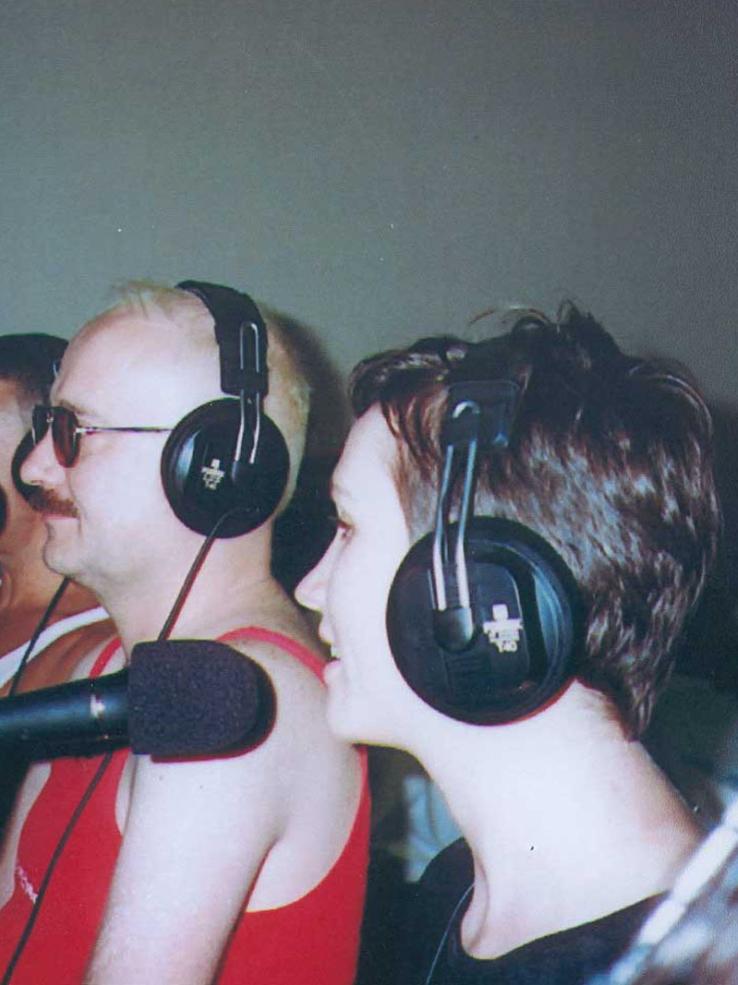
Gaywaves was Sydney’s first gay and lesbian radio program. It debuted on air in November 1979, a time when homosexual acts between men were illegal in NSW.
More Sounds of Australia highlights
Sounds of Australia preserves and celebrates the iconic audio moments that define our cultural heritage.
While 'Treaty' (1991) by Yothu Yindi borrows from rock'n'roll, the driving beat and melody of the song are drawn from traditional Yolngu music. ‘Treaty’ was voted song of the year by APRA and received roaring approval when Yothu Yindi performed it at the Closing Ceremony of the 2000 Sydney Olympics.
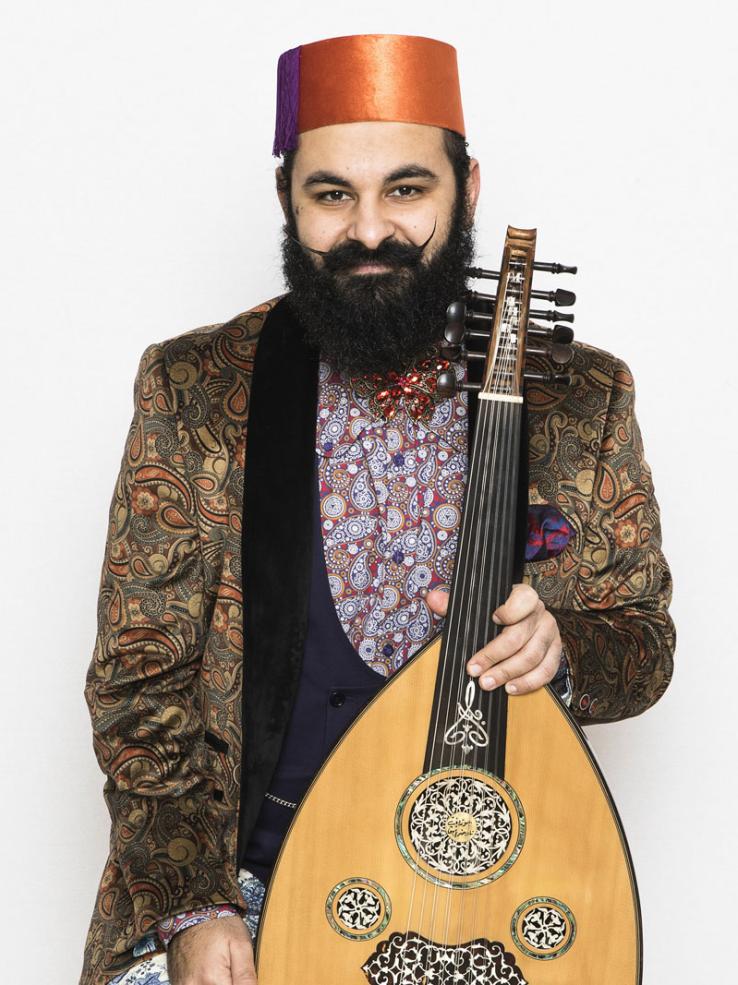
Concerto of the Greater Sea (2012) is the ARIA award-winning ninth studio album by Egyptian-born Australian, multi-instrumentalist and oud virtuoso Joseph Tawadros.
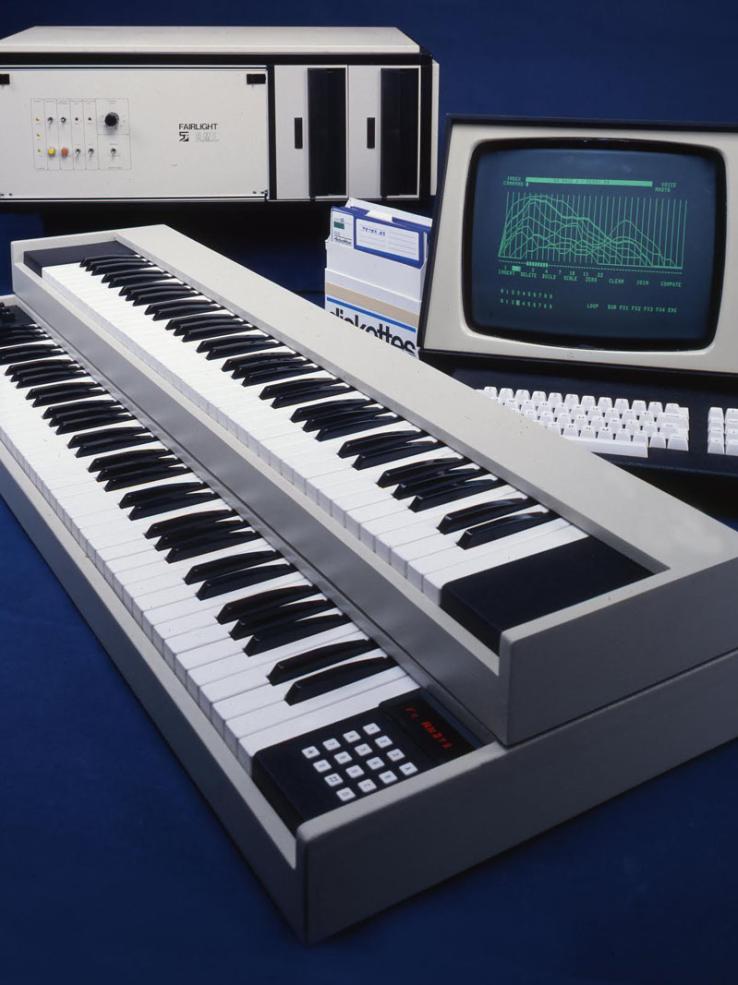
The Fairlight CMI was the world’s first polyphonic digital sampling synthesizer, invented in 1979 by Australians Peter Vogel and Kim Ryrie.
Sounds of Australia panel of experts
Kylie Bracknell – Chair, NFSA Indigenous Connections Committee
Danielle Callaghan – Founder, Black Music Alliance Australia
Lyle Chan – composer
Seb Chan – CEO, ACMI
Dale Cornelius – President, Australian Guild of Screen Composers
Matthew Davies – Treasurer, Australasian Sound Recording Association; Curator Emeritus, NFSA
Marc Fennell – journalist and presenter
Sosefina Fuamoli – broadcaster, ABC Pacific
Rowan Henderson – Director, Curatorial and Collection Research (Commissioned), NLA
Annabelle Herd – CEO, ARIA
Clare Holland – Director, Powerhouse Museum
Grace Koch – Adjunct Senior Research Fellow, National Centre for Indigenous Studies, ANU
Millie Millgate – Director, Music Australia
Lena Nahlous – CEO, Diversity Arts Australia
Associate Professor Therese Radic – Melbourne Conservatorium of Music, University of Melbourne
Annette Shun Wah – Chair, NFSA Board
Joseph Tawadros – musician; SoA inductee 2023
The National Film and Sound Archive of Australia acknowledges Australia’s Aboriginal and Torres Strait Islander peoples as the Traditional Custodians of the land on which we work and live and gives respect to their Elders both past and present.
